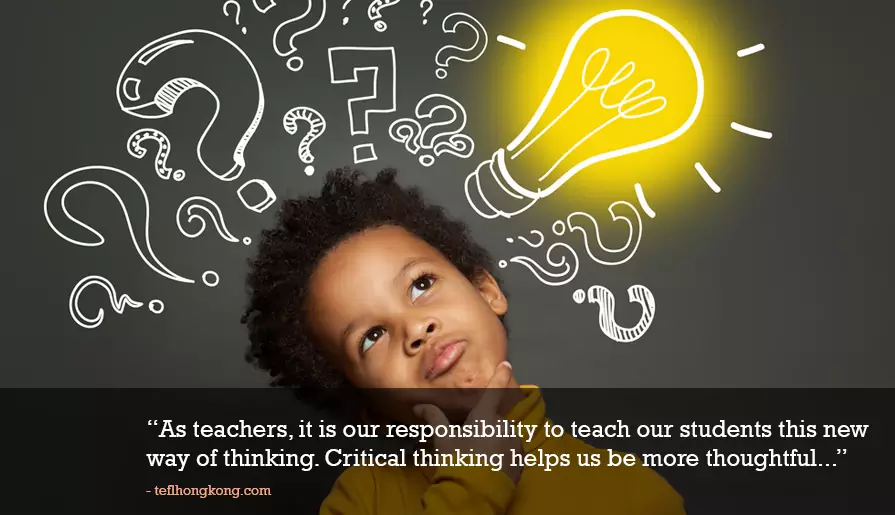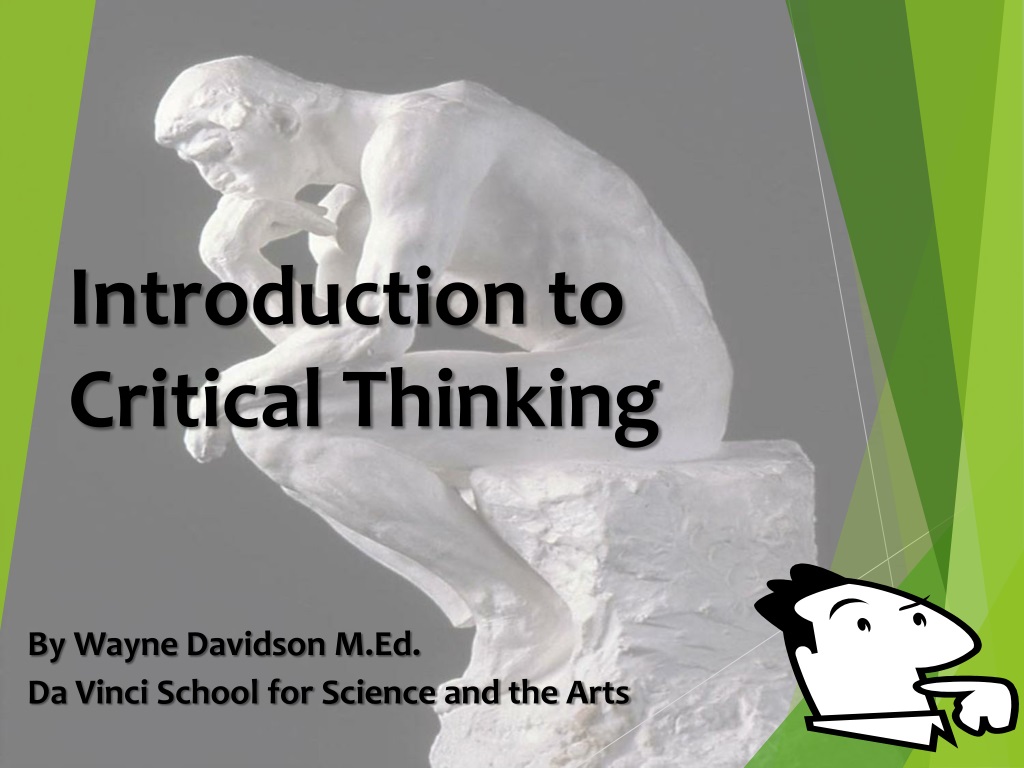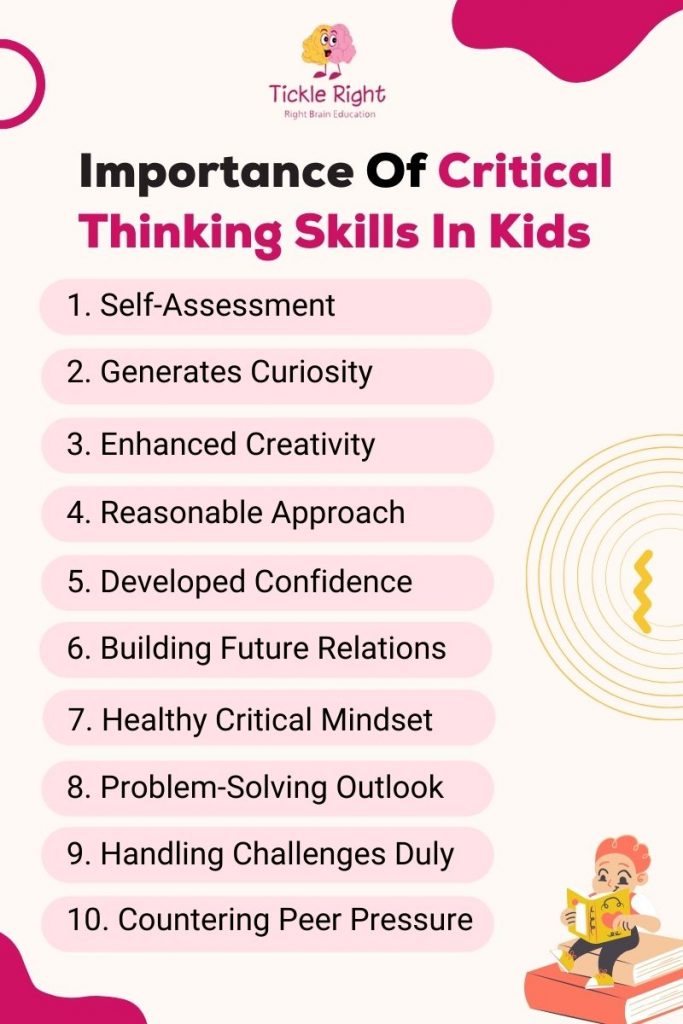
Introduction to Critical Thinking
In a world brimming with information and rapid change, the ability to think critically has never been more essential. Critical thinking is not just an academic term; it’s a life skill that empowers individuals to navigate complexities with clarity. Whether you’re sifting through news articles, making important decisions, or engaging in meaningful discussions, honing your critical thinking skills can set you apart from the crowd. This crucial skill enables you to analyze situations objectively and draw well-reasoned conclusions. As we delve deeper into this topic, you’ll discover why critical thinking matters now more than ever and how it can enhance both your personal and professional life.

The Importance of Critical Thinking in Everyday Life
Critical thinking shapes how we navigate the complexities of daily life. It empowers individuals to assess situations, make informed decisions, and evaluate information critically.
Consider the flood of news articles and social media posts we encounter every day. Without critical thinking, it’s easy to fall victim to misinformation or sensationalism. By questioning sources and motives, we can better understand the world around us.
In personal relationships, this skill enhances communication. It helps us analyze conflicts with clarity rather than reacting impulsively.
Moreover, critical thinking fosters creativity in problem-solving. When faced with challenges—be it at home or work—we become adept at exploring various solutions systematically.
Everyday encounters demand a thoughtful approach that encourages reflection over hasty judgment. This mindset not only enriches our lives but also promotes deeper understanding within our communities.
How Critical Thinking Can Benefit Your Career
Critical thinking is a game-changer in the workplace. It empowers you to analyze situations objectively and make informed decisions.
Employers highly value individuals who can evaluate information critically. This skill enhances problem-solving capabilities, making you an asset to any team.
When challenges arise, critical thinkers approach them with clarity. They weigh options carefully and consider potential outcomes before taking action.
Moreover, this skill fosters effective communication. Being able to articulate your thoughts logically helps in presenting ideas persuasively during meetings or negotiations.
Adapting your critical thinking skills also prepares you for leadership roles. You become adept at guiding teams through complex issues while encouraging diverse viewpoints.
As industries evolve rapidly, those equipped with strong critical thinking abilities navigate change more seamlessly than others do. Your ability to adapt will set you apart in today’s competitive job market.
Examples of Critical Thinking in Action
Imagine a doctor diagnosing a patient. They don’t just rely on symptoms; they analyze data, consider medical history, and weigh different treatment options. This is critical thinking in action.
In the business world, a marketing team evaluating campaign performance showcases this skill. They assess metrics, gather feedback, and adapt strategies to maximize engagement based on their findings.
Even in everyday decisions, critical thinking plays a role. Consider someone planning a family trip. They evaluate costs, research destinations, and balance preferences among family members to create an enjoyable experience for all.
In education settings too, students engage with complex texts critically. They question arguments presented by authors and form their own conclusions based on evidence rather than accepting information at face value.
These examples illustrate how vital critical thinking is across various scenarios in life today.
Ways to Develop and Improve Your Critical Thinking Skills
Engaging with diverse perspectives is a powerful way to enhance your critical thinking skills. Join discussion groups or forums where differing opinions are shared. This exposure challenges your viewpoints and fosters deeper understanding.
Reading widely can also sharpen your analytical abilities. Explore genres that push you out of your comfort zone. Fiction, non-fiction, and even academic texts can provide fresh insights.
Practice problem-solving techniques regularly. Tackle puzzles or brain teasers that require logic and reasoning. These activities not only entertain but also train your mind to think critically under pressure.
Reflection plays a key role too. After making decisions, take time to evaluate the outcomes and process involved. Understanding what worked or didn’t will refine future decision-making.
Embrace questioning as part of daily life. Ask why things are the way they are and seek evidence before accepting claims as truths; this habit cultivates an inquisitive mindset essential for critical thinking growth.

Overcoming Obstacles to Critical Thinking
Obstacles to critical thinking can often feel daunting. Many people grapple with cognitive biases that cloud their judgment. These biases may lead us to favor information that aligns with our beliefs, disregarding alternative viewpoints.
Fear is another barrier. The thought of challenging established norms or confronting uncomfortable truths can be intimidating. It’s essential to create an environment where questioning and curiosity are encouraged rather than stifled.
Additionally, time constraints pose a significant hurdle. In a fast-paced world, taking the time for reflection seems like a luxury we can’t afford. However, making space for thoughtful analysis is key to overcoming this obstacle.
Emotional reactions can interfere with clear reasoning. Learning to recognize when emotions take over allows individuals to step back and assess situations more objectively. Embracing these challenges head-on fosters resilience in critical thinking skills.
The Role of Education in Nurturing Critical Thinking
Education plays a pivotal role in fostering critical thinking skills. It provides a structured environment where students can explore ideas and challenge assumptions.
Teachers encourage questioning rather than rote memorization. This shift promotes deeper understanding and analytical thinking. Engaging discussions help learners evaluate different perspectives, enhancing their ability to reason effectively.
Curricula that integrate real-world problems compel students to apply their knowledge creatively. Such hands-on experiences allow them to navigate complex situations confidently.
Moreover, collaborative learning is instrumental. Working in diverse groups exposes individuals to varied viewpoints, enriching the thought process and stimulating innovation.
Education should prioritize developing these essential skills for success beyond the classroom. Institutions must create an atmosphere that values inquiry and intellectual curiosity at every level of learning.

Conclusion
Critical thinking stands as a vital skill in today’s complex world. Its value stretches across personal, educational, and professional realms. As we navigate through an overwhelming amount of information daily, the ability to analyze and evaluate what truly matters becomes increasingly essential.
Those who hone their critical thinking skills can make informed decisions that lead to better outcomes in life. Whether at work or in everyday situations, this skill empowers individuals to solve problems effectively and creatively.
Moreover, fostering critical thinking within educational environments can prepare future generations for the challenges they will face. By encouraging questioning and debate, educators can cultivate minds capable of independent thought.
As you reflect on your own experiences with critical thinking, consider how you might further engage with this crucial skill moving forward. Embracing it not only sharpens our intellect but also enhances our understanding of the world around us.



Leave a Reply